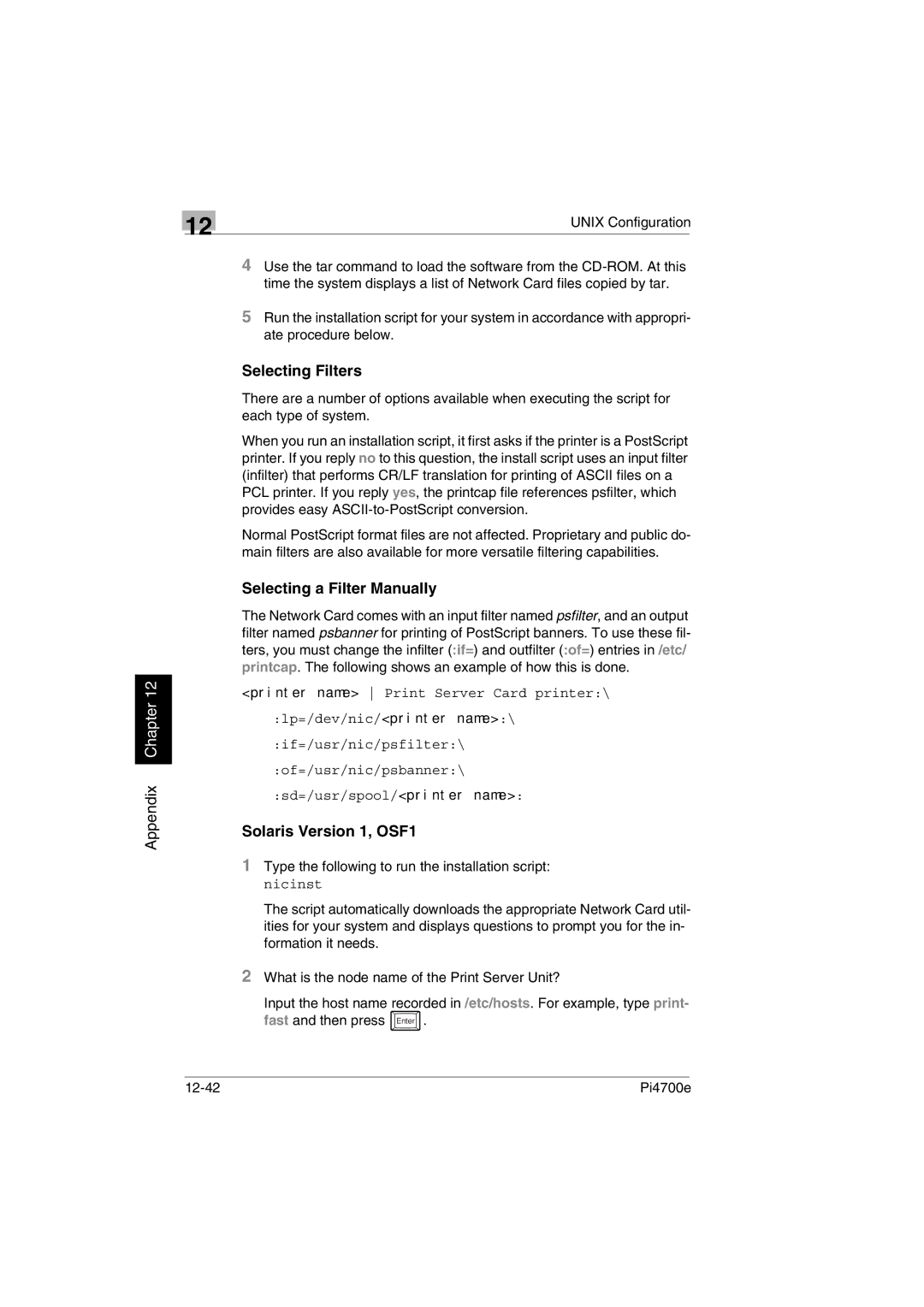
Appendix Chapter 12
| 12 | UNIX Configuration | |
|
|
| |
4Use the tar command to load the software from the
5Run the installation script for your system in accordance with appropri- ate procedure below.
Selecting Filters
There are a number of options available when executing the script for each type of system.
When you run an installation script, it first asks if the printer is a PostScript printer. If you reply no to this question, the install script uses an input filter (infilter) that performs CR/LF translation for printing of ASCII files on a PCL printer. If you reply yes, the printcap file references psfilter, which provides easy
Normal PostScript format files are not affected. Proprietary and public do- main filters are also available for more versatile filtering capabilities.
Selecting a Filter Manually
The Network Card comes with an input filter named psfilter, and an output filter named psbanner for printing of PostScript banners. To use these fil- ters, you must change the infilter (:if=) and outfilter (:of=) entries in /etc/ printcap. The following shows an example of how this is done.
<printer name> Print Server Card printer:\ :lp=/dev/nic/<printer name>:\ :if=/usr/nic/psfilter:\ :of=/usr/nic/psbanner:\ :sd=/usr/spool/<printer name>:
Solaris Version 1, OSF1
1Type the following to run the installation script: nicinst
The script automatically downloads the appropriate Network Card util- ities for your system and displays questions to prompt you for the in- formation it needs.
2What is the node name of the Print Server Unit?
Input the host name recorded in /etc/hosts. For example, type print- fast and then press Enter .
Pi4700e |
